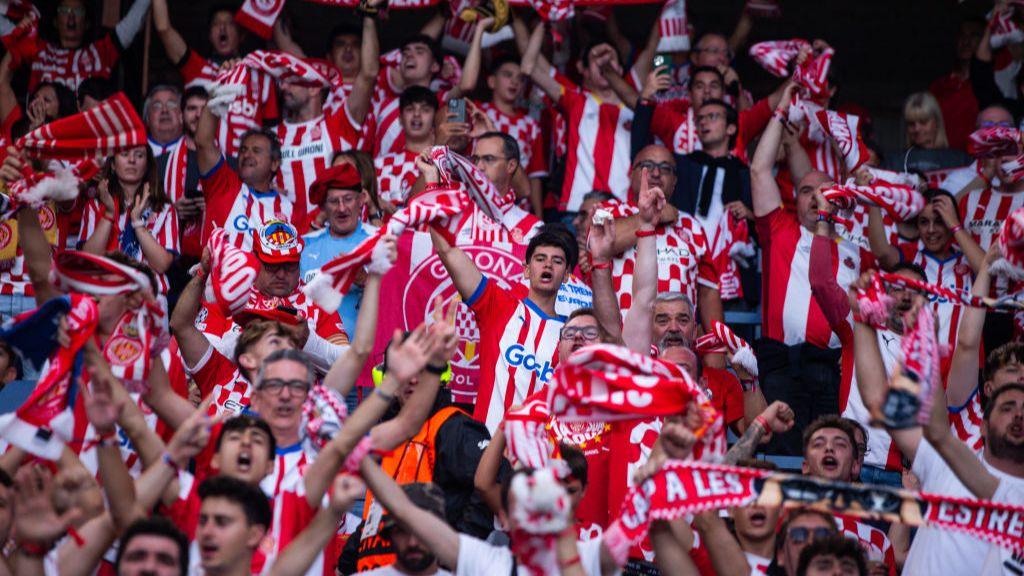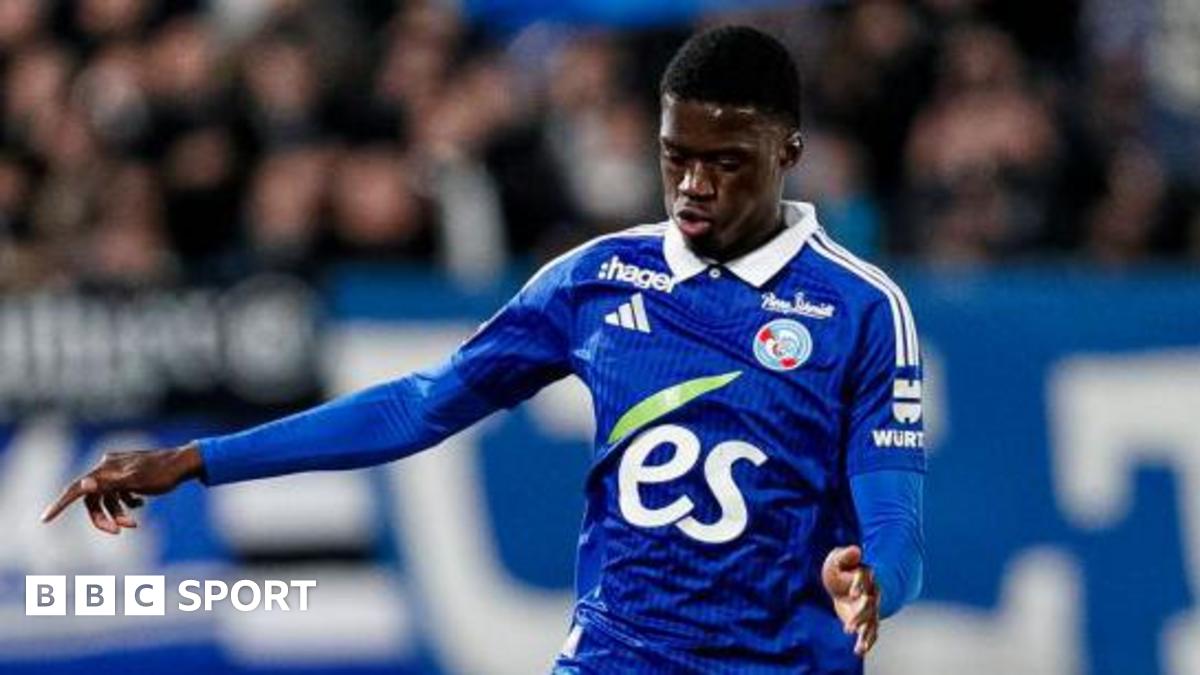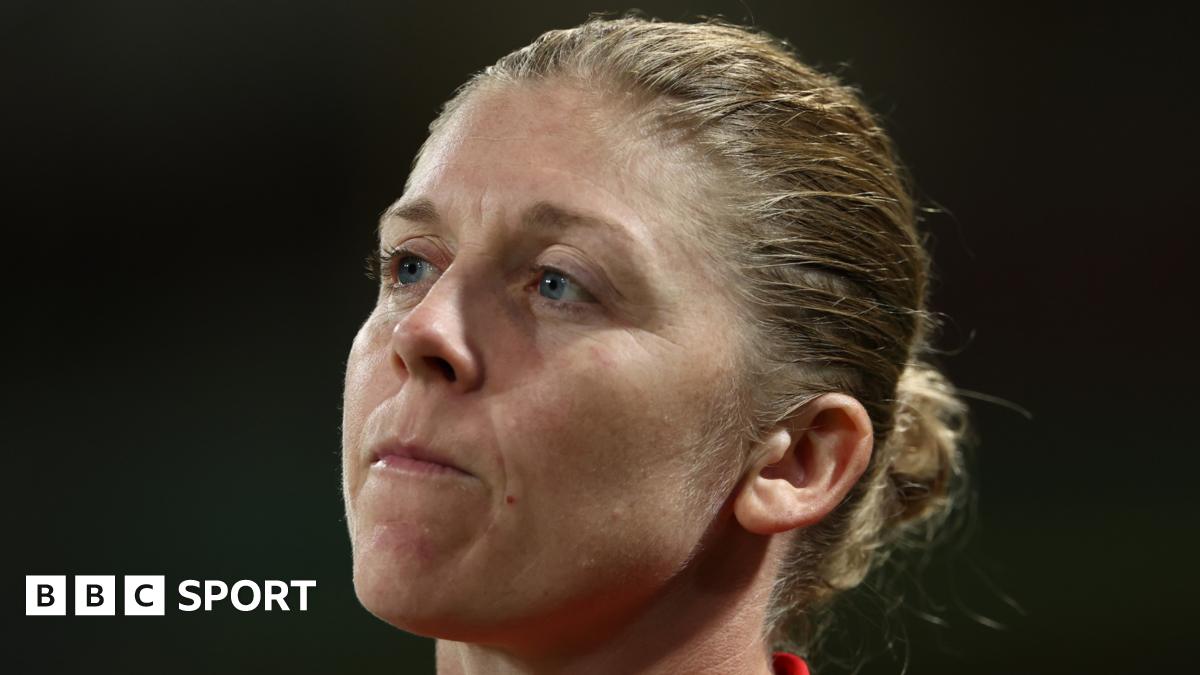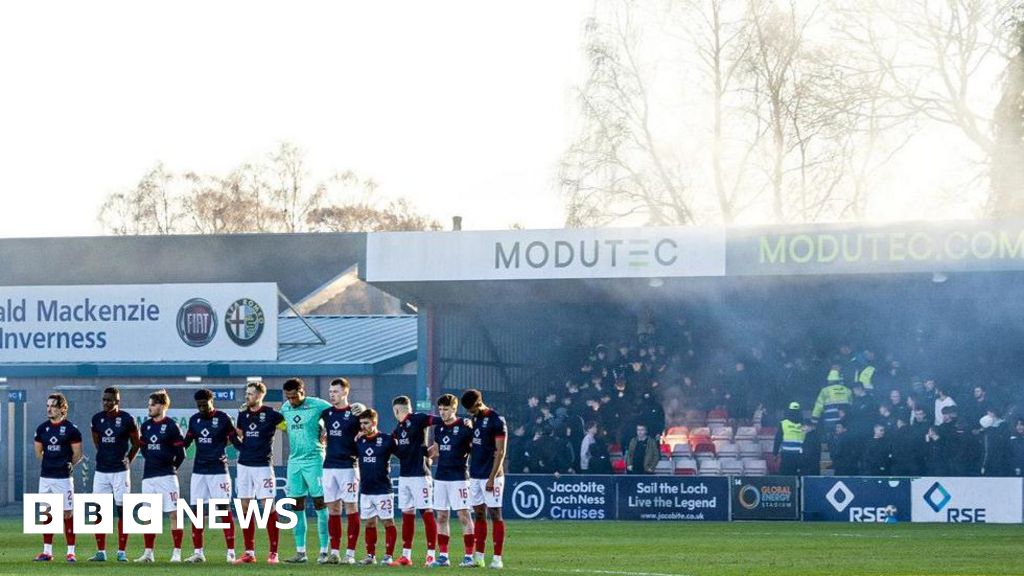ARTICLE AD BOX
 Image source, Getty Images
Image source, Getty Images
Many Girona fans may never have imagined playing in the Champions League before last season
Ciaran Varley
BBC Sport Journalist
After last season's fairytale campaign, Spanish minnows Girona are having to adapt to life in the Champions League.
Ascending to football's loftiest heights challenges the senses, and Girona's surefootenedness at this level is already being rigorously tested.
Ivan Quiros, co-founder of official Girona fan club, Penya Jandrista GFC, first attended games at the Estadi Montilivi in the late 1980s when the side were in the Spanish third division. He told BBC Sport that qualifying to face Europe's elite was "an unattainable and impossible dream, made real".
The Catalan club only entered the second division in 2008 after a 49-year absence from professional football, yet they were promoted to the Spanish top flight for the first time in 2017.
They finished third in La Liga last season, just four points behind second-placed Barcelona. They scored 85 goals, which was only two fewer than champions Real Madrid.
Catalan journalist Xevi Masachs explained that it is now commonplace to see "children with Girona shirts" – something which would have been "unbelievable" 15 years ago, when basketball was the city's main sport and most football fans supported neighbours Barcelona.
Girona's stadium can only hold around 9,600 spectators in the Champions League, because of Uefa rules. Even such a modest crowd is a far cry from when merely hundreds of fans would turn out at the ground at the turn of the century.
Jan Nadal Colome, 19, who has had a season ticket since 2012, remembers how fans were able to "walk all the way around the stadium" when he first went to games.
"We could change to the other goal when they were attacking or there was a penalty," he said.
On Wednesday, the Montilivi stadium will host Girona's third match in the Champions League – against Slovakian side Slovan Bratislava. It is safe to say this one is rather important.
Girona suffered a 1-0 defeat in their opening match against Paris St-Germain, via a 90th-minute own goal. That was followed by a 3-2 defeat at home to Feyenoord, in which Girona missed a penalty and scored two more own goals to equal Fenerbahce's record for most own goals in a single Champions League season.
After 10 La Liga matches, manager Michel’s team sit 12th in the table.
Miquel Agut Riera, who commentates on Girona's matches, said their qualification for the Champions League had come "too fast".
Was last season a one-off?
Riera cites the loss of key players over the summer as a reason for the downturn in Girona's form.
Last season's top scorer in La Liga, Artem Dovbyk, 27, joined Roma, while 20-year-old star loanee Savinho joined Manchester City for 40m euros (£30.8m).
Midfielder Aleix Garcia, 27, moved to Xabi Alonso’s Bayer Leverkusen and 23-year-old centre-back Eric Garcia returned to Barcelona at the end of his loan after playing a crucial role in Girona's defence.
Girona also recruited 11 new players. Riera told BBC Sport that, "with that amount of new players, you need time" - practically impossible given the relentless fixture calendar.
In August 2017, the City Football Group (CFG), a subsidiary of Abu Dhabi United Group, purchased 44.3% ownership in Girona.
That increased to 47% in 2020. Another 44.3% was held by Girona Football Group, led by Pep Guardiola's brother Pere.
In order for Girona to meet Uefa requirements to compete in the Champions League alongside City, CFG had to transfer shares to a blind trust and significant changes had to be made to restrict their influence and decision-making power at the club.
Those shares are due to be transferred back in July 2025.
In 2015-16, four Manchester City players were loaned to Girona, followed by three in 2016-17 and five in 2017-18. Three players were loaned in 2019-20, four in 2020-21 and three in 2021-22.
Some of those loans have been impactful - such as the one involving right-back Yan Couto, who joined Borussia Dortmund this summer for £25.3m (30m euros), after two spells at Girona.
Others have failed to make their mark. Left-back Angelino, who is now a Roma player, failed to make an appearance after being briefly loaned from City to Girona in 2017.
Supporter Colome told BBC Sport that he considered former Aston Villa midfielder Douglas Luiz, who joined Juventus for £42.35m (50m euros) in June, to be an "average player" whilst he was on loan at Girona from City from 2017 to 2019.
Commentator Riera told BBC Sport that the main advantage of being owned by CFG is a more professional structure.
"Of course, their budget was much higher, but it wasn't like Paris St-Germain, with new owners who arrived and said, 'how much money do you want?'," Riera said.
The team that finished third in La Liga last season cost just 33.75m euros (£29m) in transfer fees. Only five other teams in La Liga spent less and Real Madrid's squad cost 573m euros (£493m).
"We have been lucky with these owners," said Riera. "They are building a new facility for the players to train. They are creating the structure for a huge club, but I don't know what's going to happen in the future."
Image source, Getty Images
Image caption,Pep Guardiola's brother Pere, a former agent, is chairman of the Catalan club
Sporting director Carcel the key man
Riera considers sporting director Quique Carcel to be the "key to the last decade" of success at Girona, because "he's the figure that's always been there", before and since the CFG takeover.
The 50-year-old Barcelona native joined Girona as sporting director in 2014, when the club were competing in the second division, with multiple reports of serious financial troubles.
In his first two seasons, Girona made it to successive play-offs at that level before gaining promotion in Carcel's third campaign at the helm.
They were relegated to the Segunda Division again in 2018-19 but made it back to the top flight in 2021-22 after two previous disappointments in the play-off finals.
Journalist Masachs said that - "with very different contexts and budgets" - Carcel had always "built teams that fought for success until the last day".
During his tenure, Carcel is credited with making canny loans and transfers for youngsters, journeymen and cast-offs.
Ukrainian striker Dovbyk, who scored 24 goals in La Liga last season, was Girona's record signing last year, at 7.5m euros (£6.2m). The 27-year-old has since been nominated for the Ballon d’Or.
Brazilian winger Savinho never featured for parent club Troyes after they signed him from Atletico Mineiro for around 7m euros (£6m) in 2022. He notched up 10 goals and 11 assists on loan with Girona last season.
Carcel's contract was renewed last year to run until 2027.
Will manager Michel stay?
Image source, Getty Images
Image caption,Fans refer to head coach Michel as 'Un dels nostres' ('one of our own')
Head coach Michel arrived in the summer of 2021 and endeared himself to fans early on by learning Catalan.
Riera said that, with the 48-year-old in place, "it's like the same mind working as a sporting director and as a manager".
Girona's fearless attacking style under Michel earned praise last season.
Masachs described it with the Catalan phrase, 'viatgem junts', which means 'we travel together', explaining that "attacking begins in the defensive area".
Michel's contract expires in 2026, and Riera suggested there are doubts about whether the club will be able to hold on to him until then.
As another big midweek of European football rolls around, Riera said: "Playing Champions League may be the best that he thinks he can achieve here."

 2 months ago
19
2 months ago
19








 English (US) ·
English (US) ·